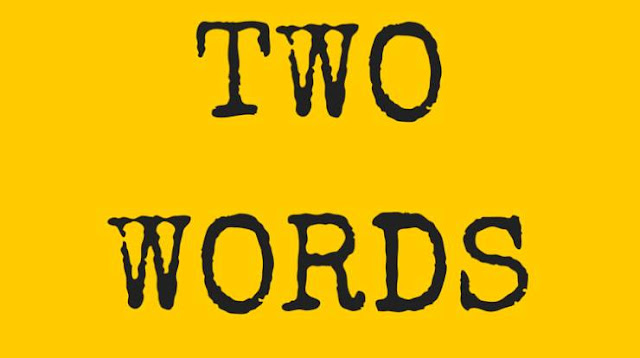
2 Words That Prevent You From Changing Your Life for The Better
Thursday, January 2, 2020
Edit
These insidious words
include fear, powerlessness, despondency and make you abandon the dream. Get
rid of them.
What are these words
Managing your mind is one of the components of
success. Much has been written about this. But it’s easier to write
or read than to realize, even if you have managed to achieve something.
To realize how much the words affect us, it is
necessary for everyone who does not like life in gray tones.
The words you use determine who you will become,
where you will end and what you will receive. The phrases that constantly
spin in your head lead to certain consequences.
- I am not very good.
- I do not deserve this.
- What if they envy me?
There are two words that are related to your
psychology and progress are much denser than you can imagine. You know
them and perhaps repeat yourself several times a day. If you put these two
words in one phrase, they will work as a trigger for fear, anxiety, and
defenselessness. They can stop you no matter what you do. Even if you
are just a step away from the finish line. These words are:
What if?..
- What if I try and fail?
- What if I can’t?
- What if everything goes wrong?
- What if this is not what I want?
- What if the husband / wife / children / parents do not approve?
- What if a loved one leaves me?
- What if they make fun of me?
- What if I lose everything?
“What if? ..” is the most terrible question for
everyone who was trying to achieve something: starting a business, ending
an unsuccessful relationship , moving to another country,
quitting work and generally making at least one important decision in life.
The good news is: if you can imagine what will
happen in the worst case, and you can accept it, then you will try sooner or
later.
But few people say that attempts rarely lead to
the worst result. Most often, the percentage of total failures is so small
(less than 5%) that it can be ignored. Usually we are talking about risk
and the price of choice.
Doing nothing is also a decision. It’s just
that you decide to abandon the goal.
How to get rid of their influence
So that all these “what ifs” do not act on you,
you need to drive your every fear through three filters. They will make you think
and demonstrate not only risks, but also ways to minimize losses so that they
stop stopping you.
Consider them as an example. Let's say you
decide to leave the designer’s warm chair in a large corporation to open your
own agency.
Question one: “What if I fail?”
- Have to look for a new job.
- Have to dismiss the staff.
- I have to explain to investors where I got the money.
- I’ll have to explain to the partner that the idea did not work.
Question two: "What are the real chances of
failing?"
Thirty percent.
Question three: "What needs to be done to reduce the
chances of failure?"
- Have to look for a new job . It is necessary to create a financial airbag that will last six months, waiting for the first solvent customers.
- Have to dismiss the staff. You need to hire people under a contract and do as much as possible independently.
- I have to explain to investors where I got the money. You need to go into a saving mode and use your own capital to start.
- I’ll have to explain to the partner that the idea did not work . Outline the risks in advance and explain that the first six months you should not expect impressive results.
The idea is simple. Consider all the
reasons that can lead to failure, and come up with a plan to minimize each of
the risks. When you dismantle all your concerns into bricks, you can form
the basis for the plan. A plan that will help you move from your current
state to what you are striving for.
The next time you feel like the words “what if”
are causing you fear, forcing you to stop and not letting you make a decision
on which the quality of life depends, take a break. Write down all your
fears, realistically assess the chances of defeat (and success, too) and draw
up a comprehensive plan to reduce the dangers.
Now you have a scheme that will help you choose
the key to the chest with your wildest dreams and take you to the
future. Of course, it may not work out. But what, in your opinion,
the question, starting with two terrible words, will be the worst in the world?
What if I succeeded?
Living with regret about what I did not do is a
hundred times worse than worrying about the result. And even worse than
raking the consequences of failure. Whatever you think,
try. Otherwise, you will recall your boring life, which could be
delightful, you just had to add a drop of calculated risk to it.